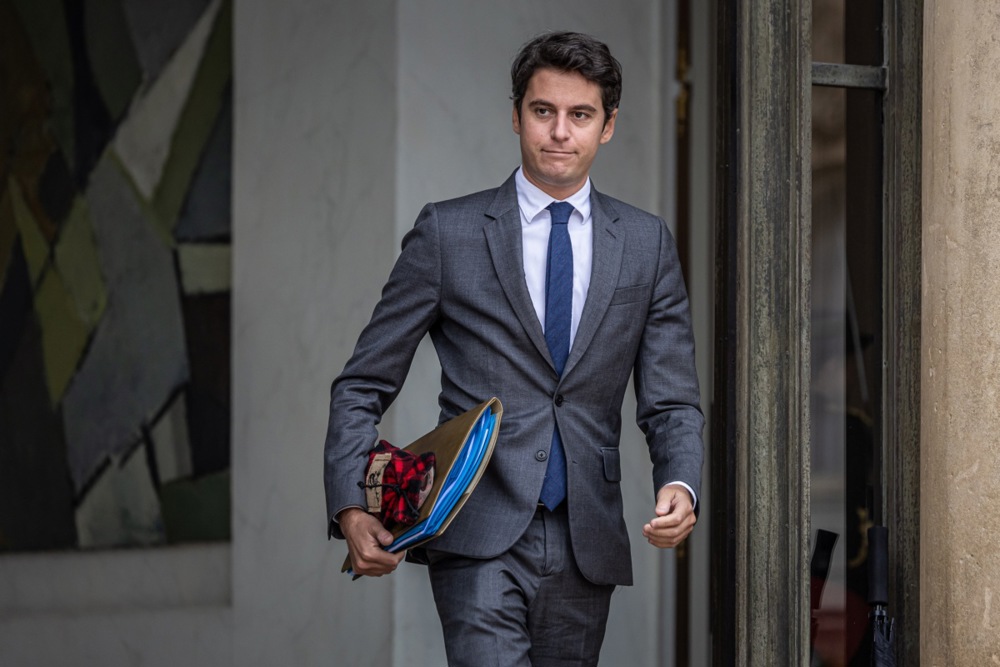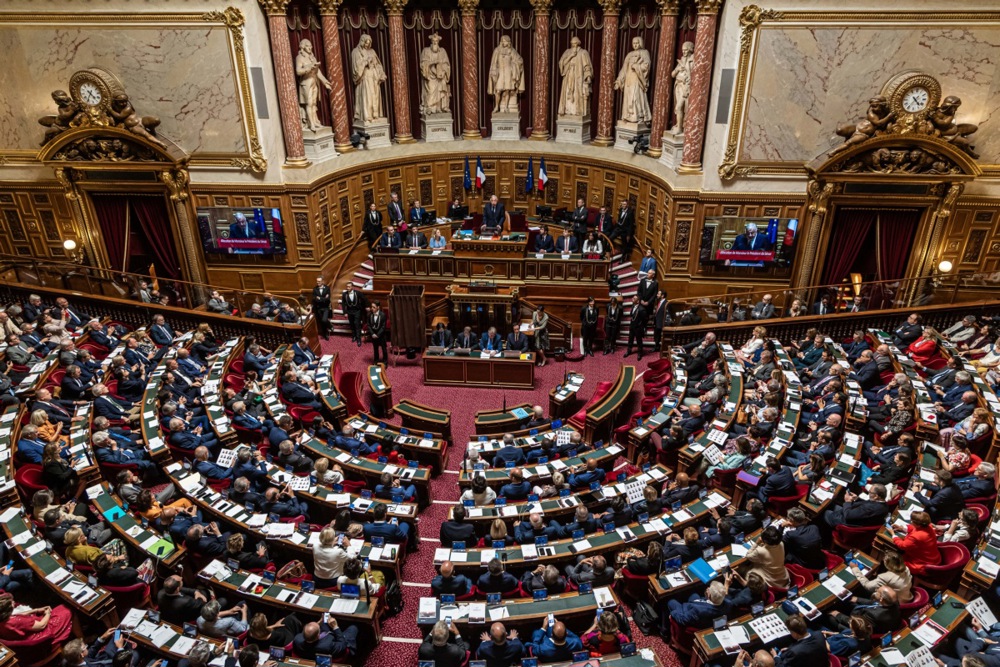France’s Senate has voted to make immigration laws stricter, after right-wing Senators toughened the bill considerably before sending it to the lower house.
After a week of intense debate and behind-the-scenes negotiations, the Senate passed the bill Tuesday afternoon by 210-115. The National Assembly will now consider the immigration bill on 11 December.
The passing of the bill is a victory for the government.
“Not many would have bet that this text, albeit modified, would be adopted, including with a regularisation measure. I am pleased about it,” says interior minister Gérald Darmanin.
? Le Sénat a adopté, avec modifications, le projet de loi pour contrôler l'immigration, améliorer l'intégration. #PJLImmigration #DirectSénat
Les résultats du scrutin :
210 pour✅
115 contre❌? La loi en clair : https://t.co/JsFHUMWj90 pic.twitter.com/lD3fwuGUbD
— Sénat (@Senat) November 14, 2023
The bill seeks better to control immigration and improve integration, and includes measures to make it easier to expel law-breakers.
Senators replaced an item in the original text allowing irregular migrants to work in sectors needing manpower with a more limited version. The amended text only allows case-by-case approval, in a “strictly regulated procedure” and “on an exceptional basis”.
An article allowing non-EU-citizens from certain countries to work once they apply for asylum was deleted.
A reference to state medical aid covering the health costs of irregular migrants disappears in favour of “emergency medical aid”. This focusses on “serious illnesses”, pregnancy-related care and statutory vaccinations.
Migrants also will now need health care insurance for themselves and their families.
Non-EU-citizens will need to prove five years of residence to benefit from housing assistance or child benefits, compared to the six months currently required.
Family reunification is tightened, and applicants now need a minimum knowledge of the French language for a multi-year A2 residence permit.
The interior minister welcomed changes making it easier to deport foreign criminals.
It lifts most barriers for expelling those who endanger public order, including those who came to France before the age of 13.
The bill is “the result of a compromise that should enable us to move forward,” says Olivier Bitz, an ally of President Macron.
“It is by no means about granting absolution to the [right-wing] majority in the Senate”, he says.
Bitz disagrees with parts of the approved bill.
Abolishing state medical aid for illegal migrants is “a serious mistake in terms of public health,” he says, adding he trusts the National Assembly to reconsider certain points in the text.
Left-wing French politicians call the changes “harsh” and “cruel”, with one saying they are “riddled with racist prejudice”.
“This text does not allow integration,” said Paris councillor Ian Brossat, a member of the French Communist Party.
The bill “tramples on the republican principles to which we are collectively attached”, he adds.
“This text is unworthy; it is a sign of a departure from acceptable standards,” says Green Senator Guy Benarroche.
Those on the political right were more happy.
“Regular immigration is a choice,” says François-Noël Buffet, a senator from the centre-right Les Républicains (LR).
“Our preference is for qualitative economic immigration and quality integration. As for irregular immigration, it’s zero tolerance,” he adds.
Further to the right, there was opposition again.
“It could have put an end to illegal immigration, illegal employment and mass regularisations,” says Christopher Szczurek, a senator from the National Front party (RN) said.
In the end, the immigration bill “is nothing more than a renunciation and a refusal to break with the past,” says Szczurek.
Il aurait pu mettre fin à l’immigration illégale, au travail clandestin et aux régularisations massives : le projet de loi sur l’immigration n’est finalement qu’un renoncement et le refus d’une rupture. Retrouvez mon explication sur le vote des 3 sénateurs @RNational_off pic.twitter.com/rwotwsddd5
— Christopher Szczurek (@C_Szczurek) November 14, 2023





